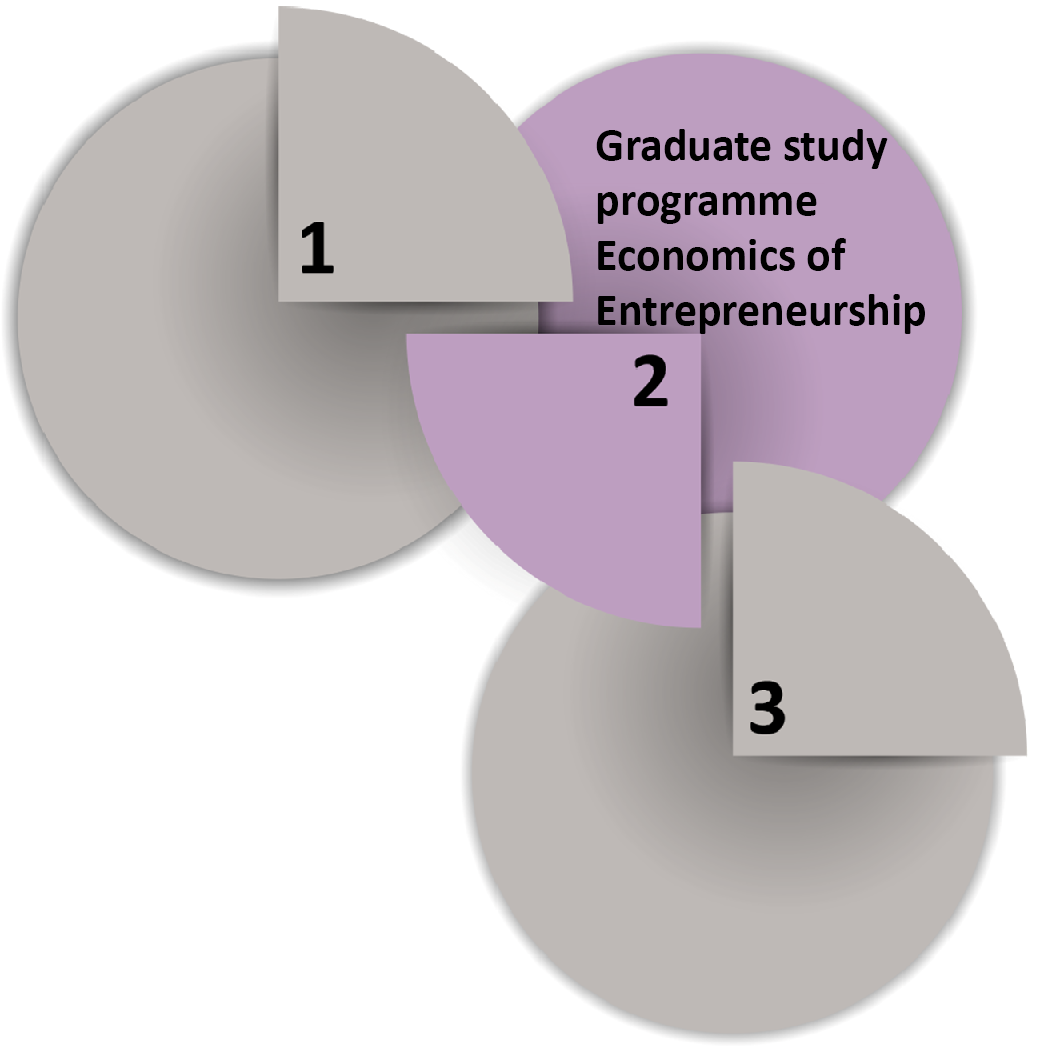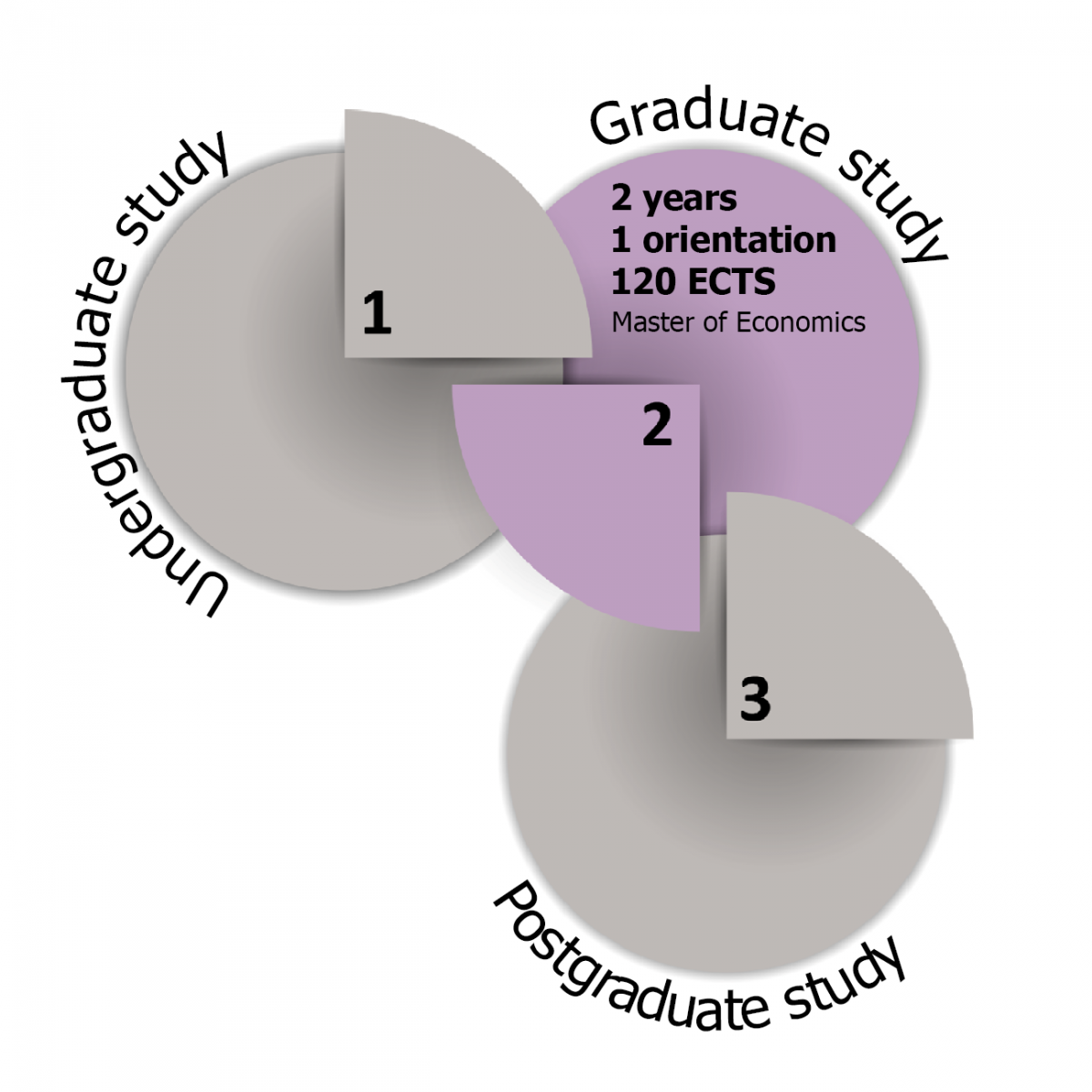
The university graduate study Economics of Entrepreneurship (EP) is performed within the field of social sciences, area of Economics. Upon successful finishing of the second study year the students acquire a title University Master of Economics. This study programe is awarded by the prestigious EFMD accreditation.

About the Study Programme
The graduate study Economics of Entrepreneurship qualify its students to work in small, medium and big enterprises as well as within family businesses that include the ownership transition to younger generations. The graduate study Economics of Entrepreneurship gives its students the necessary knowledge to proceed to the postgraduate studies in the field of Economics or similar social science.
The curriculum of the graduate study Economics of Entrepreneurship is designed to enable the students to improve their knowledge gained within undergraduate studies, to master more complex challenges within economics, organizational and information field in order to gain further knowledge that will enable them to start their own entrepreneurial businesses and to work within medium and big companies. The students receive grounds to proceed with the scientific-research work. The experts from different industries perform teaching in some disciplines within the study. This is to strengthen and to implement the concept of the desired connection of academic theoretical teaching and learning and the practical work within real sector.
Academic Title
Upon fcompleting the graduate university study programme Economics of Entrepreneurship the students receive the academic title University Master of Economics.
New Knowledge
Upon completing the graduate programme Economics of Entrepreneurship, students will be able to:
- Apply entrepreneurial theory and methods in management and decision-making in small and medium enterprises, large enterprises and public administration.
- Collect and evaluate information from scientific and professional sources with the goal of identifying opportunities and challenges of doing business in a contemporary competitive environment and implementation of new approaches in entrepreneurship and economy.
- Apply contemporary information and communication technology in analysing business information as well as in assessing and improving existing business practices, methods and strategies.
- Plan the realisation and financing of new entrepreneurial ventures and innovative ideas.
- Integrate and apply ethical principles, entrepreneurial skills, effective communication skills as well as teamwork and negotiation skills in international projects and business environment.
- Participate in the creation of an effective strategy for human resource management and sustainable growth in contemporary business organizations.




